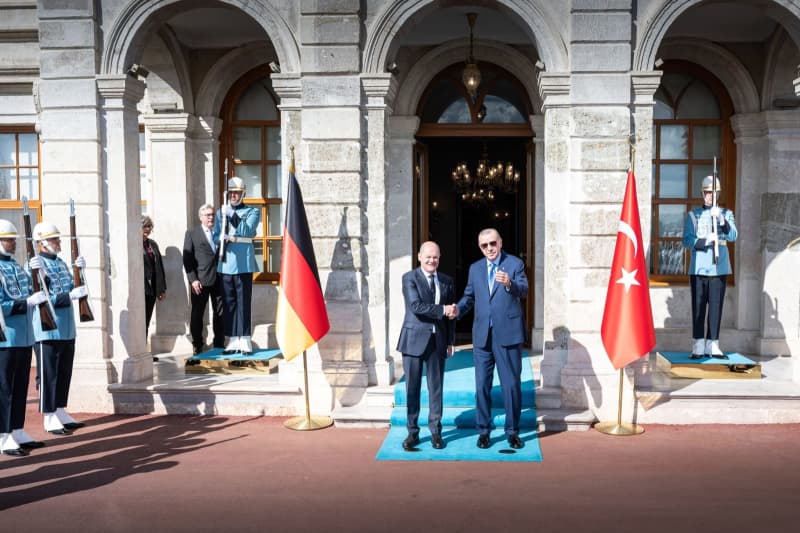After a prolonged period of limited arms exports to Turkey, the German government has embarked on a new phase, authorizing significant military shipments to the NATO ally. As of October 13, the Economy Ministry reported that 69 arms export licenses worth €103 million had been issued in 2023, with €840,000 of this amount representing actual arms sold. This uptick marks the first occasion since 2011 that arms exports to Turkey have surpassed the €100 million threshold. The previous years saw a stark decline in military trade due to geopolitical tensions and concerns over Turkey’s military actions, following the 2016 coup attempt and its subsequent invasion of northern Syria.
Evaluating the current figure, it is also notable that €101.1 million of the authorized exports consist of materials related to joint military projects with other nations. German Economy Minister Robert Habeck has indicated that these figures do not yet encompass all the recent exports. In a notable development, the German Federal Security Council recently approved the export of 28 Seahake torpedoes, along with necessary accessories and spare components, amounting to €156 million. This approval signals a shift in Germany’s defense export policy, which had been quite restrictive post-2016 due to security concerns and human rights considerations implicating Turkey’s military operations.
Touching on broader diplomatic dynamics, Chancellor Olaf Scholz’s planned discussions with Turkish President Recep Tayyip Erdoğan in Istanbul delved into defense cooperation, signaling ongoing interest in bolstered military ties. Erdoğan’s previous visit to Berlin highlighted Turkey’s aspirations to negotiate for more advanced military hardware, including a desire to acquire 40 Eurofighter fighter jets that Germany co-produces. While the German government has yet to officially approve this request, Scholz voiced support during a recent EU summit for the UK to pursue negotiations with Turkey regarding this potential sale.
The backdrop against the renewed export activity has been shaped by the historical context of German arms sales to Turkey. Prior to the military coup in Turkey in 2016, Germany had maintained robust arms dealings with Turkey, including the provision of components for submarines, which had sparked controversy, particularly with Greece. However, following political unrest and Turkey’s military interventions, German arms exports plummeted, with many licenses reduced to mere millions rather than the billions earlier witnessed.
While Berlin’s new stance on arms exports signifies a willingness to reinvigorate defense collaborations within the NATO framework, it simultaneously raises a range of ethical considerations. Critics question the implications of military support to Turkey, especially given its controversial military operations in the Middle East and ongoing disputes in the Eastern Mediterranean. The delicate balance between maintaining NATO solidarity and addressing human rights and political concerns remains a contentious issue within German politics and the broader European context.
In conclusion, the evolving landscape of German arms exports to Turkey illustrates how geopolitical shifts, coupled with internal and external pressures, shape defense policies. As Germany resumes substantial military trade with Turkey, the country must navigate the fine line between fulfilling NATO commitments and addressing ethical implications associated with arms exports to a nation with a complicated military and political track record. The forthcoming discussions between Scholz and Erdoğan may further clarify how both countries envision their defense relationship progressing in the future.

